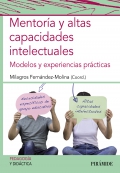Antecedentes bibliográficos del Marco de Referencia de la Discapacidad Cognitiva de Claudia Allen (MRDC) (Parte II)
Las citas bibliográficas son un compendio de autores que han hecho aportes a esta teoría, mas allá de que hayan tenido o no relación alguna con este marco de referencia, en todo caso se han consignado porque de alguna manera se tomaron opiniones o se han hecho analogías para poder construir conceptos nuevos, partiendo de teorías o constructos para sentar bases de conocimiento.
Considero que para un mejor entendimiento de este marco de referencia, es necesario leer la literatura publicada por esta autora como por ejemplo: How to Use the Allen's Cognitive Levels in Daily Practice (1999), Occupational therapy for psychiatric diseases: measurement and management of cognitive disabilities (1985), A Study Guide for Occupational Therapy Treatment Goals for the Physically and Cognitively Disabled (1993), Occupational therapy treatment goals for the physically and cognitively disabled (1992); estos brindan aportes y argumentaciones acerca de porque esta teoría debe ser utilizada y como es que a lo largo de tanto tiempo sigue vigente, si se tiene en cuenta de que han pasado mas de 40 años y aún continua actualizándose, dado que del mismo modo que tanto la ciencia como la tecnología avanza, debe avanzarse en la evaluación, el tratamiento y en la comprensión de la discapacidad.
Lo invito entonces a analizar la propuesta bibliográfica que a continuación se consignan.
Allen, C. K. (1982). Independence through activity: The practice of occupational therapy (psychiatry). American Journal of Occupational Therapy, 36, 731–739.
Allen, C. K. (1985). Occupational therapy for psychiatric diseases: Measurement and management of cognitive disabilities. Boston, MA: Little, Brown.
Allen, C. K. (1987). Activity: Occupational therapy’s treatment method (Eleanor Clarke Slagle lecture). American Journal of Occupational Therapy, 41, 563–575.
Allen, C.K. (1987a). Occupational therapy: Measuring the severity of mental disorders. Hospital and Community Psychiatry, 38, 140-142.
Allen, C.K. (1987b). Eleanor Clarke Slagle Lectureship-1987: Activity, occupational therapy’s treatment method. American Journal of Occupational Therapy, 41, 563-575.
Allen, C. K. (1987). Occupational Therapy: Functional assessment of severity of mental disorders. Hospital and Community Psychiatry, 39, 140-142.
Allen, C. K. (1988). Cognitive disabilities. In S. Robertson (Ed.) Focus. Rockville, MD: American Occupational Therapy Association.
Allen, C. K. (1989a). Treatment plans in cognitive rehabilitation. Occupational Therapy Practice, 1, 1-8.
Allen, C.K. (1989b). Psychiatry. In T. Malone (Ed.) Physical and Occupational Therapy: Drug Implications for Practice. Philadelphia: J.B. Lippincott.
Allen, C.K. (1989). Unpublished Routine Task Inventory (RTI-E).
Allen, C, K. (1990). Activities: Cross-cultural similarities and differences. Paper presented at the 10th International Congress of the World Federation of Occupational Therapy, Melbourne, Australia.
Allen C. K. (1990). Development of a research tradition. Mental Health Special Interest Section Newsletter. American Occupational Therapy Association, 13(2), 1-3.
Allen, C.K. (1991). Cognitive disabilities and reimbursement for rehabilitation and psychiatry. Journal of Insurance Medicine. 23. 4. 245-247.
Allen, C. K. (1992). Rehabilitation and learning. In C. K. Allen, C. A. Earhart, & T. Blue (Eds.), Occupational therapy treatment goals for the physically and cognitively disabled (pp. 339–350). Bethesda, MD: American Occupational Therapy Association.
Allen, C.K. (1994). Creating a need-satisfying, safe environment: Management and maintenance approaches. In C. B. Royeen (Ed.) AOTA Self-Study Series: Cognitive Rehabilitation. Rockville, MD: American Occupational Therapy Association.
Allen, C. K. (1994). The disabled human mind. Unpublished manuscript.
Allen, C.K. (1996). Allen Cognitive Level test manual (with kit included). Colchester, CT: S & S/Worldwide.
Allen, C. K. (1996). The Allen Cognitive Level Screen – 90. Colchester, CT: S&S Worldwide.
Allen, C. K. (1999). Structures of the cognitive performance modes. Ormond Beach, FL: Allen Conferences.
Allen, C.K. & Allen, R. E. (1987). Cognitive Disabilities: Measuring the social consequences of mental disorders. Journal of Clinical Psychiatry, 48, 185-191.
Allen, C. K., Austin, S. L., David, S. K., Earhart, C. A., McCraith, D. B., & Riska-Williams, L. (2007). Manual for the Allen Cognitive Level Screen–5 (ACLS-5) and Large Allen Cognitive Level Screen–5 (ACLS-5). Camarillo, CA: ACLS and LACLS Committee.
Allen, C. K., & Blue, T. (1998). Cognitive disabilities model: How to make clinical judgments. In N. Katz (Ed.), Cognitive rehabilitation: Models for intervention in occupational therapy (pp. 225-279). Bethesda, MD: American Occupational Therapy Association.
Allen, C. K., Blue, T., & Earhart, C. A. (1995). Understanding the modes of performance. Ormond Beach, CA: Allen Conferences.
Allen, C. K., Earhart, C. A., & Blue, T. (1992). Occupational therapy treatment goals for the physically and cognitively disabled. Bethesda, MD: American Occupational Therapy Association.
Allen, C. K., Kehrberg, K. L., & Burns, T., (1992) Evaluation Instruments. In C. K.
Allen, Earhart, C. A. & Blue, T., (1992) Occupational therapy treatment goals for the physically and cognitively disabled (pp.31-84). Bethesda, MD: American Occupational Therapy Association.
Allen, C.K., Earhart, C.A., & Blue, T. And Therasoft (1996). Allen Cognitive Level documentation (software). Colchester, CT.: S & S/Worldwide.
Allen, C.K., Earhart, C.A., & Blue, T. (1992). Occupational Therapy Treatment Goals for Physically and Cognitively Disabled. American Occupational Therapy Association, Rockville, Maryland.
Allen, C.K. Foto, M., Moon-Sperling, T. & Wilson, D. (1989). A medical review approach to Medicare outpatient documentation. American Journal of Occupational Therapy, 43, 793-800.
Allen, C. K., & Mendel, W. M. (1982). Chronic illnesses and staff burnout: Revised expectations for change in the supportive-care model. International Journal of Partial Hospitalization, 1, 191–201.
Allen, C.K. & Robertson, S.C. (1993). A Study Guide for Occupational Therapy Treatment Goals for the Physically and Cognitively Disabled. Rockville, MD: AOTA.
Allen Conferences, Inc. (March 17, 2000). Allen Cognitive Level Screen 2000. Retrieved October 14, 2007, from http://www.allen-cognitive-levels.com/acls.htm.
Alsberg, D. (1987). Safety implications of cognitive disabilities: Using cognitive theory as an adjunct to discharge planning. Unpublished master’s thesis. Rush University, Chicago.
American Educational Research Association, the American Psychological Association, & National Council on Measurement in Education (1999). Standards for educational and psychological testing. Washington DC: American Educational Research Association.
American Occupational Therapy Association. (2008). Occupational therapy practice framework: Domain and process (2nd ed.). American Journal of Occupational Therapy, 62, 625–683.
Anderson, M. (1992). Intelligence and development: A cognitive theory. Cambridge, MA: Blackwell.
Austin, S. A. (2009). Hierarchies of abilities and activity demands in the Allen Diagnostic Module 2nd Ed.: A validity study (Unpublished doctoral dissertation). University of Illinois, Chicago.
Averbuch, S., & Katz, N. (1988). Assessment of perceptual cognitive performance comparison of psychiatric and brain injured adult patients. Occupational Therapy in Mental Health, 8, 57-71.
Bar-Yosef, C., Weinblatt, N., & Katz, N. (1999). Reliability and validity of the Cognitive Performance Test (CPT) in an elderly population in Israel. Physical and Occupational Therapy in Geriatrics, 7, 65–79.
Bieber, D. C., & Keller, B. (2005). Falls and the client with dementia: Using the occupational profile and Allen cognitive level to direct care. Gerontology: Special Interest Section Quarterly, 28, 1–3.
Breeding, C. J. (1993). Performance of six to nine year old children without disability for the Allen Cognitive Level test, expanded version. Unpublished Master’s Thesis, University of Southern California; Los Angeles.
Blue, T. (1992). The Sensory Stimulation Kit. Cochester, CT: S&S Worldwide.
Brown, D.E. (1991). Human universals. Philadelphia: Temple University Press.
Brown, C. (2000). Clinical interpretation of "A comparison of the Allen Cognitive Level Test and the Wisconsin Card Sorting Test in adults with schizophrenia". American Journal of Occupational Therapy, 54(2), 134-136.
Burns, T. (1990). The cognitive performance test: A new tool for assessing Alzheimer’s disease. OT Week. December, 27. Rockville, MD. American occupational Therapy Association.
Burns, T. (1992). The Cognitive Performance Test: An approach to cognitive level assessment in Alzheimer’s disease. In C. Allen, C. Earhart, & T. Blue (Eds.), Occupational therapy treatment goals for the physically and cognitively disabled (pp. 46–50). Bethesda, MD: American Occupational Therapy Association.
Burns, T. (2006). The Cognitive Performance Test manual. Pequannock, NJ: Maddak.
Burns, T., McCarten, J. R., Adler, G., Bauer, M., & Kuskowski, M. A. (2004). Effects of repetitive work on maintaining function in Alzheimer’s disease patients. American Journal of Alzheimer’s Disease and Other Dementias, 19, 39–44.
Burns, T., Mortimer, J. A., & Merchak, P. (1994). Cognitive Performance Test: A new approach to functional assessment in Alzheimer’s disease. Journal of Geriatric Psychiatry and Neurology, 7, 46–54.
Camp, C., Peterson, C. (1987). A comparison of cognitive level and adaptive behavior in an adult sample with mental retardation. Unpublished master’s thesis; San Jose State University; San Jose . California.
Carmel, R., Katz, N., & Modai, I. (1996). Construct validity of the Allen Cognitive Level (ACL) test: Relationship of cognitive level to hand dexterity in a group of adult inpatients suffering from major depression. The Israel Journal of Occupational Therapy, 5(4), E230-231.
Cermak, S.A., et. al. (1995). Performance of Americans and Israelis with cerebral vascular accident of the Lowenstein occupational therapy cognitive assessment battery. American Journal of Occupational Therapy: 49, 500-506.
Chan, C., Ray, S., & Trudeau, S. (2001). The development and reliability of the Cantonese version of the Allen Cognitive Level Screen. Occupation Therapy International, 8(4), 287-300.
Chapleau, A. & Seroczinski, A., 2006. Using the Allen cognitive model in a community consultation program. Proceedings of the Symposium in Cognition. Indianapolis, IN: Allen Cognitive Advisors, Ltd. Contact membership@allen-cognitive-network.org for a copy of this presentation.
Cheney, D.L. & Seyfarth, R.M (1990). How monkeys see the world: Inside the mind of another species. Chicago: University of Chicago Press.
Cook, V. & Nelson, M. (1996). Chomsky’s universal grammar: an Introduction, 2nd ed.. Cambridge, MA.: Blackwell Publishers.
Cole, M. (2005). Group dynamics in occupational therapy: The theoretical basis and practice application of group intervention. Thorofare, NJ: Slack.
Cusick, A., & Harai, H. (1991). The Allen tests for cognitive disability: A cross cultural pilot study. Occupational Therapy in Mental Health, 11(4), 61-75.
Data Management Service (1987), Guide for the Use of the Uniform Data Set for Medical Rehabilitation. Buffalo, New York: Data Management Service of the Uniform Data System for Medical Rehabilitation.
David, S. K., & Riley, W. T. (1990). The relationship of the Allen Cognitive Level Test to cognitive abilities and psychopathology. American Journal of Occupational Therapy, 44, 493–497.
David, S. K. (1992). The relationship of the ACL to organic changes in the brain. Medical College of Georgia. Masters Thesis, 1992.
Diagnostic and Statistical Manual of Mental Disorders: DSM III, 3rd edition (1980). Washington, DC American Psychiatric Association.
Diagnostic and Statistical Manual of Mental Disorders: DSM IV, 4th edition. (1994). Washington, DC: American Psychiatric Association.
Donda, B., Stratta, P., & Sconci, V. (2001). Utilizzo dell’Allen Cognitive Level Leather Lacing (ACL) in un campione italiano di pazienti affetti da disturbo schizofrenico e disturbo bipolare [Application of the Allen Cognitive Level Leather Lacing (ACL) in an Italian sample of schizophrenic and bipolar patients]. Rivista di Psichiatria, 36, 330–336.
Earhart, C. A. (1985). Occupational therapy groups. In C. K. Allen (Ed.), Occupational therapy for psychiatric diseases: Measurement and management of cognitive disabilities (pp. 235–266). Boston, MA: Little, Brown.
Earhart, C.A. & Allen, C. K. (1988). Cognitive disabilities: Expanded activity analysis. Authors
Earhart, C. A. (1992). Analysis of activities. In C. K. Allen, C. A. Earhart, & T. Blue (Eds), Occupational therapy treatment goals for the physically and cognitively disabled (pp. 125–239). Bethesda, MD: American Occupational Therapy Association.
Earhart, C.A., Allen, C.K., & Blue, T. (1993). Allen diagnostic module instruction manual. Colchester, CT.: S & S/Worldwide.
Earhart, C. A. (2006). Allen Diagnostic Module: Manual (2nd ed.). Colchester, CT: S&S Worldwide.
Earhart, C. A., & Allen, C. K. (1988). Cognitive disabilities: Expanded activity analysis. Analysis of craft processes and cognitive stimulation and response. Los Angeles: University of Southern California Press.
Earhart, C. A., & Allen, C. K. (1992). Allen Diagnostic Module: Manual. Colchester, CT: S&S Worldwide.
Eibl-Eibeesfeldt, I. (1989). Human ethology. New York: Aldine de Gruyter.
Finger, S.,& Stein, D.B. (1982). Brain damage and recovery: Research and clinical perspectives. New York: Academic Press.
Folstein, M. F., Folstein, S.E., & McHugh, P. R.(1975). Mini Mental State: A practical method for grading the cognitive state of patients for clinician. Journal of Psychiatric Research, 12, 189–198.
Foto, M. (1996). Nationally speaking-Delineating skilled versus non-skilled services: A Defining point in our professional evolution. American Journal of Occupational Therapy. 50: 168-170.
G R A T I S
-
En las últimas décadas se han dado grandes pasos aceptándose los modelos teóricos y conceptuales más complejos sobre la conducta i...28.50 €
-
Descubre el origen de la energía y cómo se transforma para llegar hasta nuestras casas y ciudades. Conoce las diferentes fuentes d...19.12 €
-
He aquí un secreto que todos los maestros zen conocen: la gran mayoría de nuestras preocupaciones son espejismos, suposiciones sin...11.00 €
-
Paquete de 25 cuadernillos de observación conductual de MABC-2. Batería de Evaluación del Movimiento para niños - 2....51.61 €
ARTÍCULOS RELACIONADOS
- Instrumentos de evaluación Una aproximación a la teoría de Claudia Allen
- Instrumentos de evaluación Una aproximación a la teoría de Claudia Allen (parte V)
- Instrumentos de evaluación Una aproximación a la teoría de Claudia Allen (parte IV)
- Instrumentos de evaluación Una aproximación a la teoría de Claudia Allen (parte III)
- Instrumentos de evaluación Una aproximación a la teoría de Claudia Allen (parte II)
- Guía para el cuidador. Allen Cognitive Level Screen (ACLS) (Parte III)
- Guía para el cuidador. Allen Cognitive Level Screen (ACLS) (parte II)
- Guía para el cuidador. Allen Cognitive Level Screen (ACLS)
- Los niveles cognitivos de Claudia Allen (ParteV) Nivel 6 acciones planificadas











